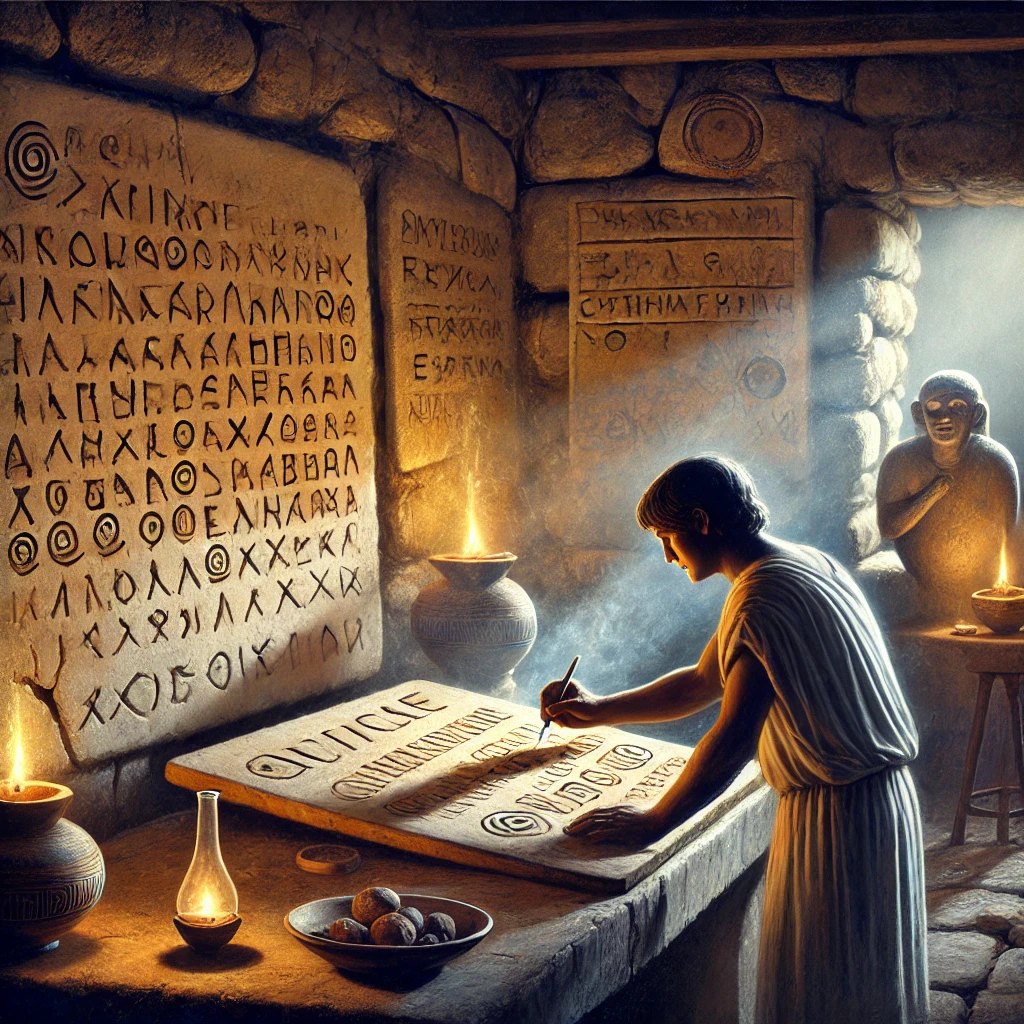The history of curseology in ancient Europe, particularly in Mycenaean Greece, is a fascinating look into how early European cultures perceived and utilized curses, often in connection with the divine, magic, and justice. Here is an overview:
1. Mycenaean Greece (1600–1100 BCE)
The earliest traces of curse practices in ancient Greece date back to the Mycenaean civilization, which left behind clay tablets with Linear B script, hinting at a proto-religious system and societal beliefs that involved supernatural influences. Curses, in these early contexts, were invoked to seek divine justice or protection from wrongdoing.
- Linear B Tablets: While not explicit about curses, the Linear B tablets reveal religious practices that imply divine punishment. The Greeks believed that gods could be invoked to protect against wrongdoers or curse enemies. The Mycenaeans left tablets asking for divine intervention in personal conflicts, an early form of curse invocation.
- Deities and Divine Retribution: Many Mycenaean deities, such as Poseidon and Zeus, were worshipped for their protective powers. Poseidon, notably associated with earthquakes, was thought to bring wrath or favor upon cities, hinting that the god’s displeasure could be invoked as a form of curse.
2. Curse Tablets and Binding Spells (Post-Mycenaean and Archaic Periods)
Following the collapse of Mycenaean Greece, curses evolved in the Greek world, especially with the rise of the Archaic and Classical periods. The use of curse tablets, also known as defixiones, became more common as Greeks began formalizing rituals to bind or curse rivals, often in matters of law, love, or commerce.
- Curse Tablets: These lead tablets, found across Greece and later in ancient Rome, contained written curses directed at specific people. The curse tablets usually called upon underworld deities like Hades or Persephone to bind or harm an adversary.
- Magic and Binding Spells: Spells were used not only to curse but also to bind individuals, typically in athletic or legal competitions. People believed these spells could restrict others’ movements, make them lose court cases, or fail in love pursuits.
3. Curses in Homeric Literature and Oral Tradition
The stories from the Iliad and the Odyssey, while somewhat removed from Mycenaean times, reflect themes of curses and divine retribution that were likely influenced by earlier Mycenaean beliefs. Homer’s works frequently allude to curses by gods and mortals, showing a culture where curses were part of maintaining moral and social order.
- Curses and Wrath of the Gods: In Homer’s epics, curses are often expressed as divine wrath, such as the curse on the House of Atreus or the suitors of Penelope. These epic stories served as a cultural repository for myths about curses, creating a mythological foundation for later Greek beliefs.
- Role of Seers and Oracles: Ancient Greek society valued oracles and seers who often spoke of curses as retribution from the gods for human hubris. These figures were seen as intermediaries who could predict or interpret curses and omens, reflecting the longstanding belief in divine punishment that likely has Mycenaean roots.
4. Cultural Influence on Later Greek Curseology
Mycenaean curse practices set the stage for later developments in ancient Greece, where ritualistic curses became integral to both public and private life. In the Classical period, curses became more systematized, and magic gained a formal role in rituals.
- The Curse of the Grave: Ancient Greeks would often inscribe curses on graves to ward off grave robbers. This practice likely traces back to Mycenaean beliefs about the afterlife and the sanctity of burial.
- Role of the Underworld Gods: Gods of the underworld were frequently invoked in curses, a theme that can be traced to early beliefs in chthonic (earthly) deities with powers over life and death. This continued to be reflected in Hellenistic Greece, with Hades and Persephone being called upon in many curse tablets and spells.
In sum, the curse practices of Mycenaean Greece, while not as extensively documented as later periods, reveal the early foundations of curseology that would evolve in ancient Greek society. Curses were integral to the early Greek worldview, blending the divine with the mortal in an effort to seek protection, justice, or revenge.
